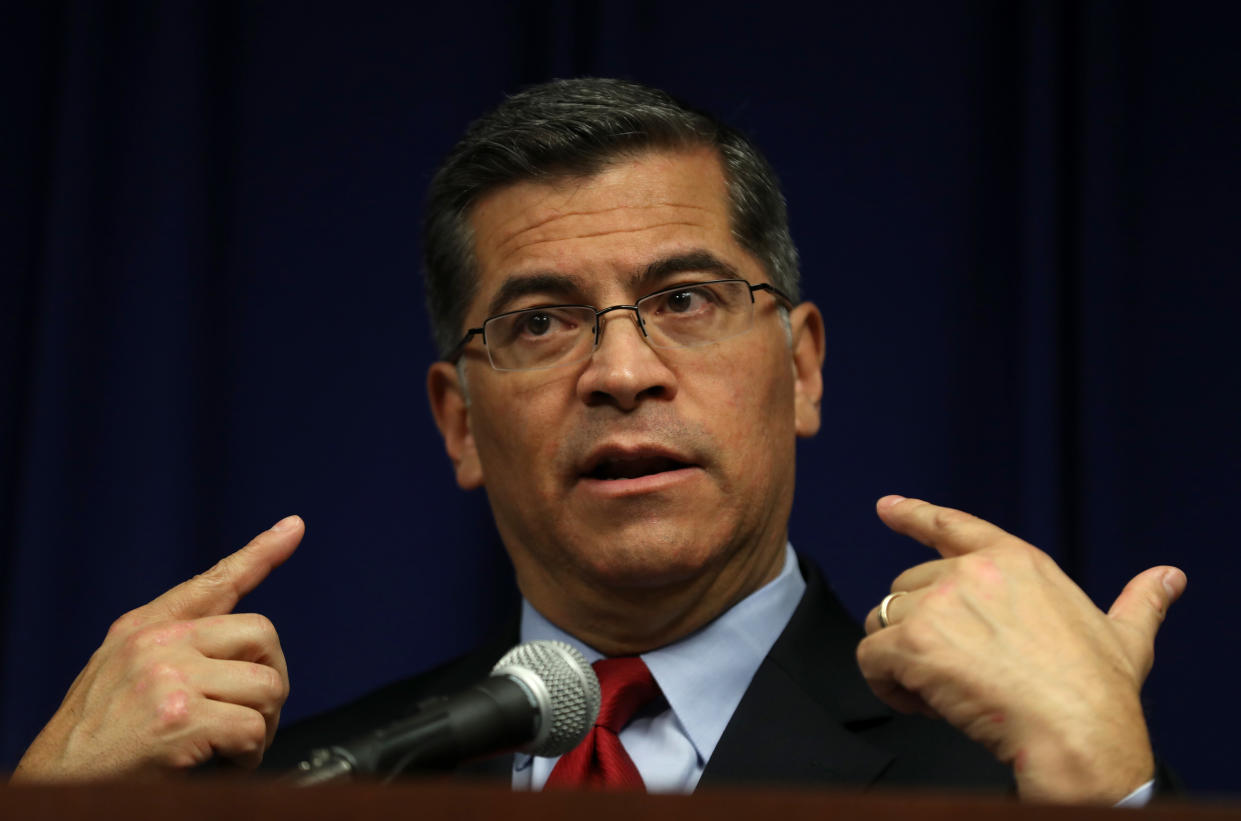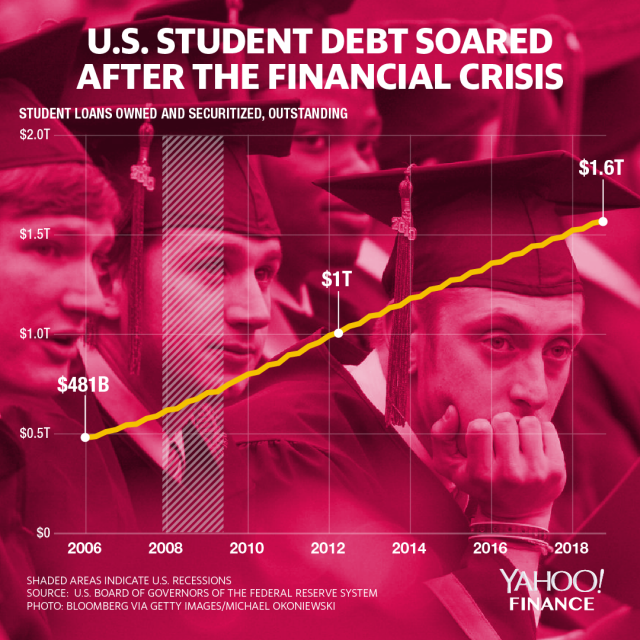California AG sues Betsy DeVos for overturning Obama-era rule aimed at for-profit colleges

This story has been updated.
California Attorney General Xavier Becerra is suing Education Secretary Betsy DeVos for overturning a 2014 rule designed to protect students against predatory institutions.
Filed in the United States District Court for the Northern District of California, the lawsuit states that since Education Department (ED) “illegally rescinded” the 2014 “gainful employment” rule, it violated the Administrative Procedure Act, and hence should be “declared unlawful and set aside.”
“As we face a national emergency, we think it's especially important to keep the safeguards that protect educational quality so that hardworking Americans who invest in higher education do not face one more hurdle to economic stability,” an advisor to Becerra said in a statement.
The department defended its position in a statement to Yahoo Finance. "The Department will vigorously defend its final regulation rescinding this deeply flawed rule," U.S. Department of Education Press Secretary Angela Morabito said.
The 2014 gainful employment rule — which drew the ire of for-profit colleges — was created by the Obama administration to ensure that schools were denied access to federal aid if their graduates had weak career prospects and heavy debt loads.
“The illegal repeal of the 2014 rule will incentivize predatory schools to engage in manipulative recruiting tactics, raise tuition, and deliver low-quality instruction, without regard to whether their programs leave students with poor job prospects, worthless credentials, and mountains of student debt,” the lawsuit stated.
It added: “As with so many of ED’s recent regulatory endeavors, in its haste to repeal the rule, ED acted illegally in violation of the Administrative Procedure Act. The repeal must therefore be declared unlawful and set aside.”

‘It’s telling’
DeVos has faced a slew of lawsuits since she assumed her position at the head of the department.
Becerra had previously sued DeVos in 2017 — along with 18 other attorneys general — alleging that she illegally delayed the implementation of the 2014 rule.
But California isn’t the only one going after DeVos for reversing this rule. In January, the country’s second-largest teachers’ union sued her for reversing the gainful employment rule.
“You can gauge a person’s soul by how they respond in a crisis,” American Federation of Teachers (AFT) President Randi Weingarten said in a statement. “It’s telling that Betsy DeVos, when confronted with the biggest student debt disaster in American history, decides once again to side with profiteers, not borrowers.”
The lawsuit was also filed in the United States District Court for the Northern District of California.
According to ED in 2014, it estimated that 1,400 programs serving 840,000 students — 99% of whom were at for-profit institutions — would not pass the accountability standards under the gainful employment rule.
The for-profit higher education sector has seen tremendous growth after the 2008 Crisis. In 2016, the New York Fed noted that enrollment at these schools had “skyrocketed” as the country emerged out of the Great Recession.
Debt levels rose as well as students graduating from for-profit institutions generally hold far higher levels of debt than those attending other institutions.
The gainful employment rule addressed this imbalance by requiring schools’ graduates to have loan payments that were less than 8% of their total income or 20% of their discretionary income, as The New York Times explained in 2014. It was officially reversed by DeVos in 2019 and will be effective as of July 1, 2020.
And earlier this year, a group of consumer advocates filed a separate lawsuit against ED for revising the borrower defense rule, which is designed to give defrauded students debt relief. California’s Becerra also has a lawsuit pending against ED for the same reason.
—
Aarthi is a writer for Yahoo Finance. She can be reached at aarthi@yahoofinance.com. Follow her on Twitter @aarthiswami.
Read more:
Education Secretary Betsy DeVos faces another lawsuit for overturning an Obama-era rule
Teachers union sues Betsy DeVos for overturning Obama-era rule
Student loan reform group sues Education Secretary Betsy DeVos and CFPB Director Kathy Kraninger
Read the latest financial and business news from Yahoo Finance
Follow Yahoo Finance on Twitter, Facebook, Instagram, Flipboard, SmartNews, LinkedIn, YouTube, and reddit.


